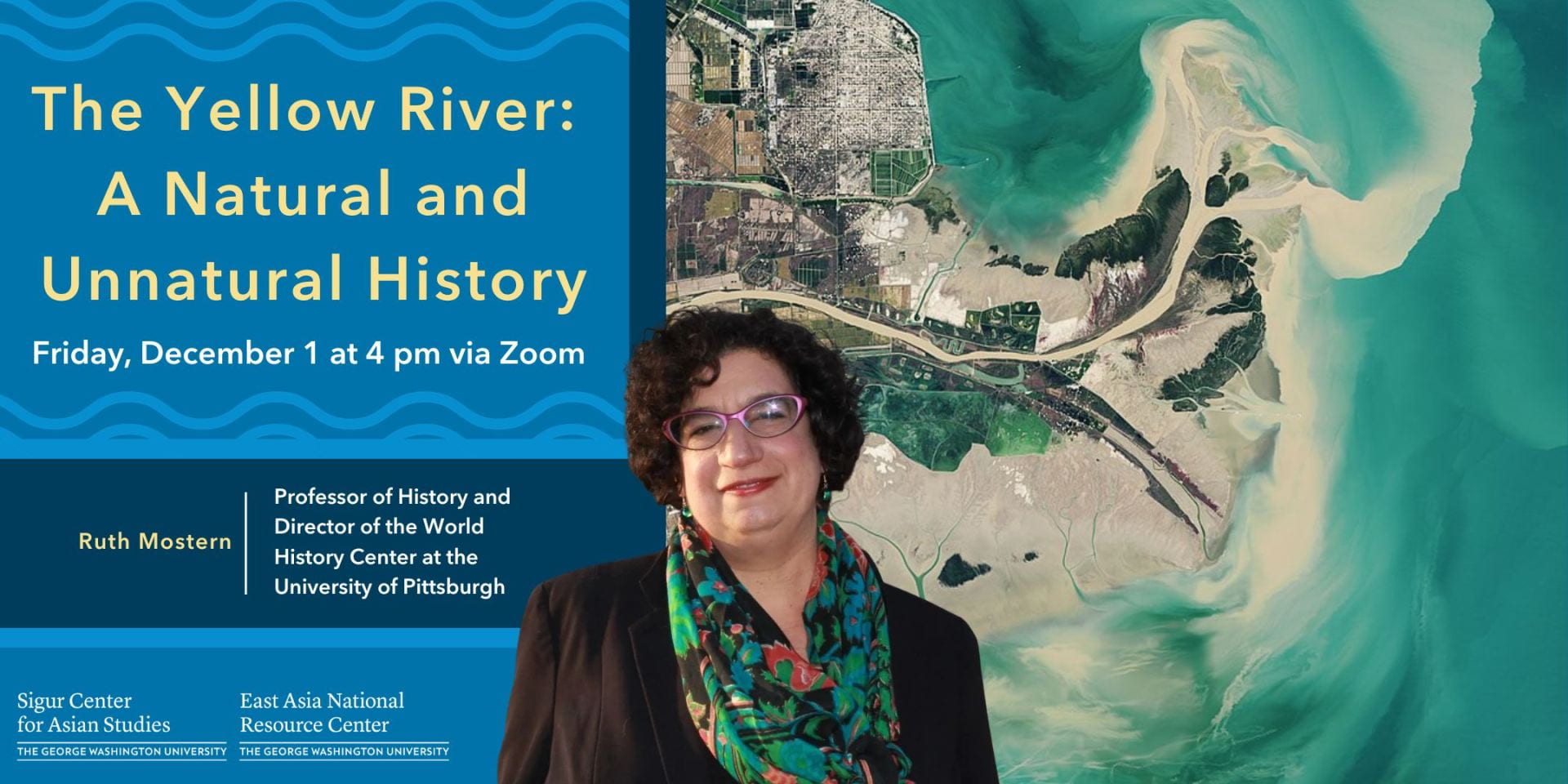
Friday, December 1, 2023 · 4 – 5pm EST
Virtual Talk on Zoom
About this event:
From Neolithic times to the present day, the Yellow River and its watershed have both shaped and been shaped by human society. Using extensive documentary records combined with archaeological evidence and observations from environmental science to create data-informed maps and timelines, it is possible to trace the long-term effects of environmentally significant human activity on the Yellow River. This talk, based on Mostern’s 2021 book, The Yellow River: A Natural and Unnatural History, explains the long history of the human relationship with water and soil and the consequences, at times disastrous, of ecological transformations that resulted from human decisions. This work underlines how governments consistently ignored the dynamic interrelationships of the river’s varied ecosystems—grasslands, riparian forests, wetlands, and deserts—and the ecological and cultural impacts of their policies. This work, about patterns, transformations, and devastating ruptures throughout ecological history, also has implications about the way we continue to affect the natural systems upon which we depend.
The Yellow River: a natural and unnatural history can be purchased from Yale University Press.
About the speaker:
Ruth Mostern is Professor of History and Director of the World History Center at the University of Pittsburgh. She is the author of two single-authored books: Dividing the Realm in Order to Govern: The Spatial Organization of the Song State, 960-1276 CE (Harvard Asia Center, 2011), and The Yellow River: A Natural and Unnatural History (Yale University Press, 2021), winner of the Joseph Levenson Prize from the Association for Asian Studies in 2022. She is also co-editor of Placing Names: Enriching and Integrating Gazetteers (Indiana University Press, 2016), and of a special issue of Open Rivers Journal (2017). She is the author or co-author of over thirty articles published in books and peer reviewed journals. Ruth is Principal Investigator and Project Director of the World Historical Gazetteer, a prize-winning digital infrastructure platform for integrating databases of historical place name information. Her research has been funded by entities that include the US National Endowment for the Humanities, the US National Science Foundation, the American Council of Learned Societies, and others. She has held visiting positions in China, Australia, and the United States. At present she is working on three distinct research projects: one about the history of climate, erosion, and settlement in northwest China; one about the global history of placemaking, and one about the limits of sustainability in the Anthropocene. Ruth received her Ph.D. from the University of California, Berkeley in 2003 and was Founding Faculty at the University of California, Merced, where she spent 13 years before moving to Pitt in 2017.
Registration
The event is open to the public. Guests who register for the online event will receive details for joining the Zoom meeting.


